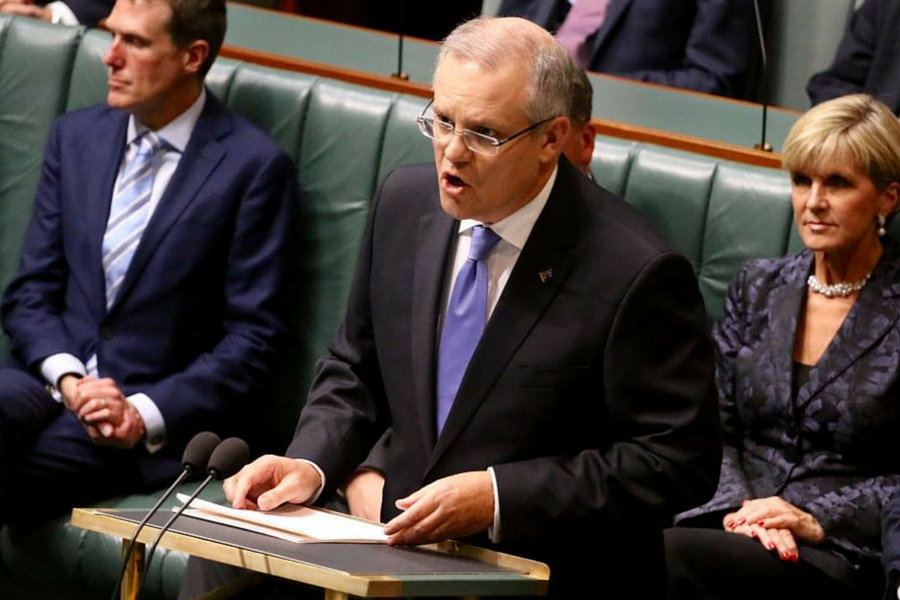Open banking will “revolutionise” Australia’s financial services sector by giving consumers the right to share their data to get themselves a better deal, Treasurer Scott Morrison said.
The establishing of an open banking regime was first announced in the 2017 Budget last May, with the core aim of giving consumers easier access to, and more control over, the data around their finances and transactions that is held by their banks and its sharing with other institutions, in turn giving them more information and choice when selecting financial products and services.
The regime is to be part of a wider Consumer Data Right being implemented across various sectors following the recommendation by the Productivity Commission’s inquiry into Data Availability and Use.
The Productivity Commission recommended that a ‘Comprehensive Right’ to data should allow consumers to, among other things, share joint access to and use of their data with the data holder, receive a copy of their consumer data, request edits or corrections to it for accuracy, and be informed of the trade or other disclosure of consumer data to third parties.
With the Consumer Data Right to be implemented sector by sector and the banking, energy, and telco sectors to be the first cabs off the rank, an independent review into open banking and the best framework through which to establish such a regime was commissioned, with Morrison releasing the report of the Review into Open Banking on Friday.
More than 50 recommendations were made in the 158 page report, authored by Scott Farrell of legal firm King Wood & Mallesons, covering four core principles.
Above all, open banking should be customer-focused, the report stated, for the customer, about the customer, and seen from the customer’s perspective; and it should encourage competition, and increase competition for banking products and services available to customers so they can make better choices.
Open banking should also create opportunities, the report stated, by providing a framework through which new ideas and business can emerge and grow, establishing a “vibrant and creative data industry”; and it should be efficient and fair, effected with security and privacy in mind, so that it’s sustainable and fair without being more complex or costly than needed.
“Granting third-party access to a customer’s data will allow rival providers to offer competitive deals, products that are tailored to individual needs, and enhanced services that simplify the choices customers face when accessing banking services,” Morrison said.
“It should simplify the process of switching between banks and help to overcome the ‘hassle factor’ that sees customers stay with their current bank even in the presence of more competitive deals elsewhere.”
The report recommended open banking be legislated through amendments to the Competition and Consumer Act, regulated by the Australian Competition and Consumer Commission (ACCC) and supported by the Office of the Australian Information Commissioner, with bodies including the Australian Securities and Investments Commission (ASIC) and the Reserve Bank Australia (RBA) providing advice as required.
With the scope of the data collected and participants in the regime crucial, the report recommended the sharing of customer-provided data, transaction data that is stored in a digital form for specific types of accounts held in Australia, and product data, with all authorised deposit-taking institutions (ADIs), other than branches of foreign banks, to share customer data.
Data supporting an identity verification check, any data that would materially increase the risk of customer identity theft, aggregated data, and transformed data should not be shared.
In looking at privacy, the report recommended the Privacy Act continue to protect customer data under open banking, and that open banking require “informed, explicit customer consent”, with data only to be shared when the customer has given an “explicit direction” to the data holder to do so.
Customers should also be notified of the data they are sharing and be able to revoke access easily, and find it easy to understand the implications of their actions in open banking.
The report also recommended customer data be transferred via APIs, built in accordance with Standards to be designed by the Australian Data Standard Setting Body, and that data be transferred free of charge.
Responses to the report are being sought, with submissions to be taken until March 23.
Image: Scott Morrison. Source: abc.net.au.




















Trending
Daily startup news and insights, delivered to your inbox.